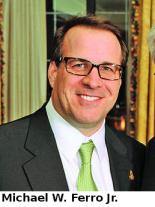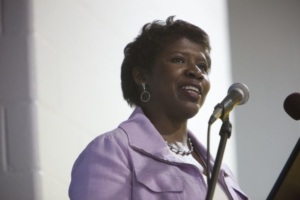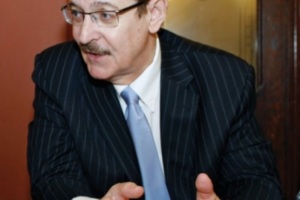As Cristo Rey New York High School students discussed a 60 Minutes report about a black man wrongly convicted of armed robbery by an all-white jury in Texas and sentenced to life in prison with no chance of parole, they began to make connections between the First Amendment and the watchdog role of a free press.
Without that investigative report, a student concluded, “Nobody would have known or cared.”
These students were among the first to dig into NLP’s newest classroom lesson, introduced this fall. Titled “Democracy’s Watchdog,” this lesson explores the importance of a vigilant free press by bringing to life four case studies of notable investigative reporting:
- Nellie Bly’s pioneering undercover reporting in 1887 about a hospital for the mentally ill.
- The Washington Post’s iconic coverage of the Watergate scandal in the early 1970s.
- The 60 Minutes report in 1983 that led to overturning the wrongful conviction of Lenell Geter.
- The Atlanta Journal-Constitution’s groundbreaking investigative series in 1988 that exposed racially biased mortgage-lending practices.
The lesson employs the “jigsaw method,” in which students are initially each assigned to two groups: “expert” and “jigsaw.” First, students are divided into four expert groups to learn as much as possible about a single case study. They then reassemble to share what they learned in their jigsaw groups, made up of experts from each of the four case study groups. This enables students to master a significant amount of material in a short time through peer teaching.
The lesson ends with the entire class reflecting on how the outcomes in each case — and democracy itself — would have been different without a free press.
Students have embraced this lesson. At DePaul College Prep in Chicago, students subsequently told their teacher that they wanted to watch All the President’s Men, the movie depicting the Watergate reporting of the Post’s Bob Woodward and Carl Bernstein.
In New York City, students “found the cases very interesting and enjoyed discussing with their classmates the reliance of each case on the First Amendment,” said Stephanie Mueth, an English teacher at Cristo Rey. “It was an intriguing lesson for the students, which allowed them to think critically and creatively.”

 Even before its national launch this week, the News Literacy Project’s
Even before its national launch this week, the News Literacy Project’s 
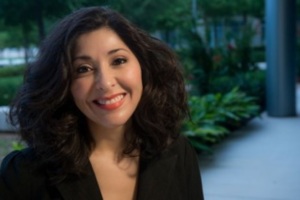 She will coordinate education programs and resources between the city and Houston schools, community colleges, universities and nonprofits. She began in the newly created position on Feb. 1.
She will coordinate education programs and resources between the city and Houston schools, community colleges, universities and nonprofits. She began in the newly created position on Feb. 1.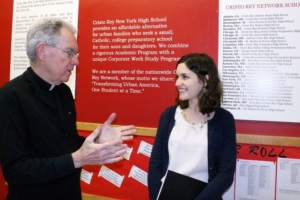
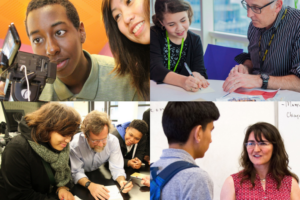
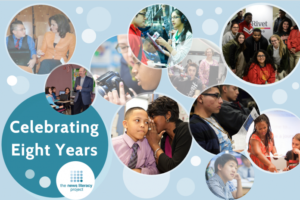 The News Literacy Project celebrated two milestones today — the eighth anniversary of its founding and the seventh anniversary of its classroom program, which kicked off with an event in Brooklyn featuring founding board member Soledad O’Brien. Since then we’ve worked with more than 150 diverse and dynamic middle schools and high schools in four major markets.
The News Literacy Project celebrated two milestones today — the eighth anniversary of its founding and the seventh anniversary of its classroom program, which kicked off with an event in Brooklyn featuring founding board member Soledad O’Brien. Since then we’ve worked with more than 150 diverse and dynamic middle schools and high schools in four major markets.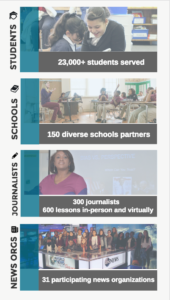
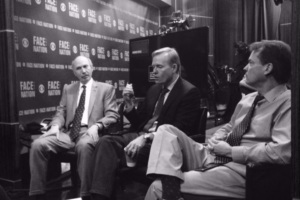
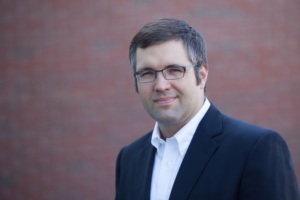 Nicco Mele, an acclaimed digital strategist who has served as the News Literacy Project’s pro bono technology adviser for more than four years, has been named deputy publisher of the Los Angeles Times.
Nicco Mele, an acclaimed digital strategist who has served as the News Literacy Project’s pro bono technology adviser for more than four years, has been named deputy publisher of the Los Angeles Times.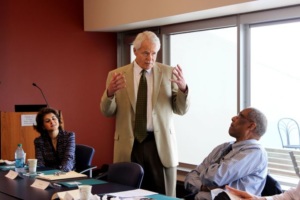 He was the first person to join NLP’s board in 2008 and served as its chairman for four years (2011-2014). He remained on the board until his death in June at age 73. The cause was Creutzfeldt-Jakob disease, a rare degenerative brain disorder.
He was the first person to join NLP’s board in 2008 and served as its chairman for four years (2011-2014). He remained on the board until his death in June at age 73. The cause was Creutzfeldt-Jakob disease, a rare degenerative brain disorder.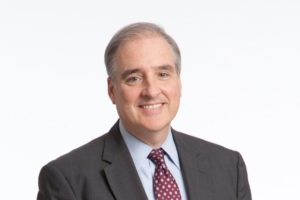
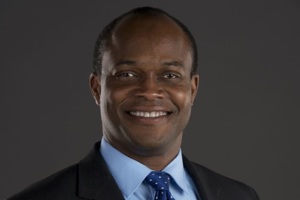 In May 2014, he was named by Fast Company as one of the “Most Creative People 2014.”
In May 2014, he was named by Fast Company as one of the “Most Creative People 2014.”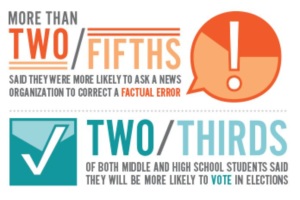
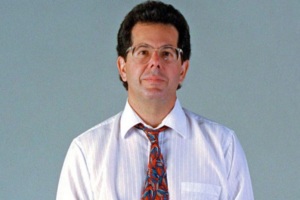 wy body dementia, his wife, Marjorie Baker, said.
wy body dementia, his wife, Marjorie Baker, said.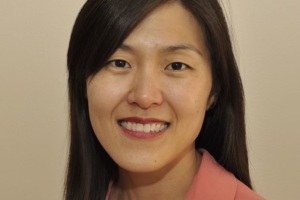 NLP President Alan C. Miller said that Pae brings “an exemplary fundraising track record, a deep commitment to serving youth and an impressive set of skills that will serve the organization well as we seek to expand our financial capacity. We look forward to working with her.”
NLP President Alan C. Miller said that Pae brings “an exemplary fundraising track record, a deep commitment to serving youth and an impressive set of skills that will serve the organization well as we seek to expand our financial capacity. We look forward to working with her.”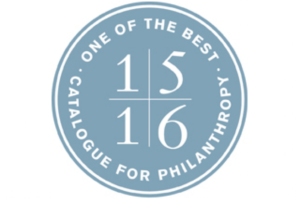
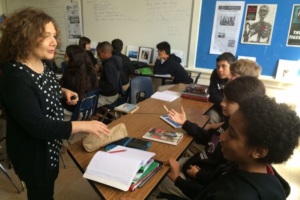
 Hobbs brings a wealth of media, management and teaching experience to NLP. She was an award-winning reporter for more than a decade, including five years covering education at the Orlando Sentinel, and has been an adjunct instructor in writing and journalism at four colleges and universities — most recently at the University of Illinois at Chicago, where she also held various communications roles.
Hobbs brings a wealth of media, management and teaching experience to NLP. She was an award-winning reporter for more than a decade, including five years covering education at the Orlando Sentinel, and has been an adjunct instructor in writing and journalism at four colleges and universities — most recently at the University of Illinois at Chicago, where she also held various communications roles.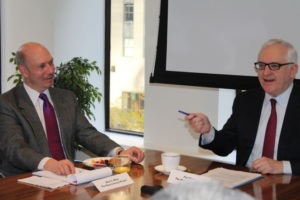 In this increasingly crowded information landscape, readers are “looking for credible information they can trust,” Gigot said. “That’s the coin of the realm.”
In this increasingly crowded information landscape, readers are “looking for credible information they can trust,” Gigot said. “That’s the coin of the realm.”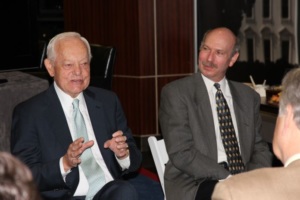
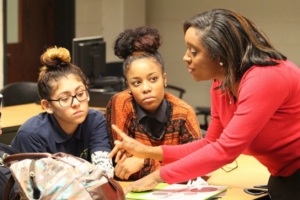
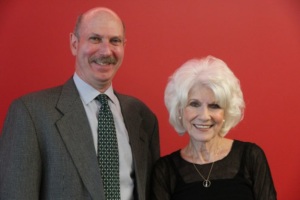
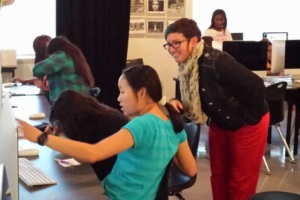
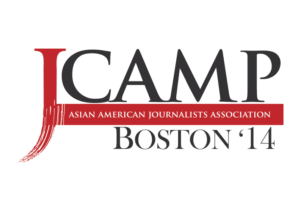 The
The 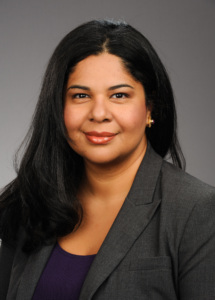 “As our students rise up to the challenge of higher standards and get ready to go to college, career skills like crit
“As our students rise up to the challenge of higher standards and get ready to go to college, career skills like crit